The polio survivor who says she ‘was one of the lucky ones’
- Published
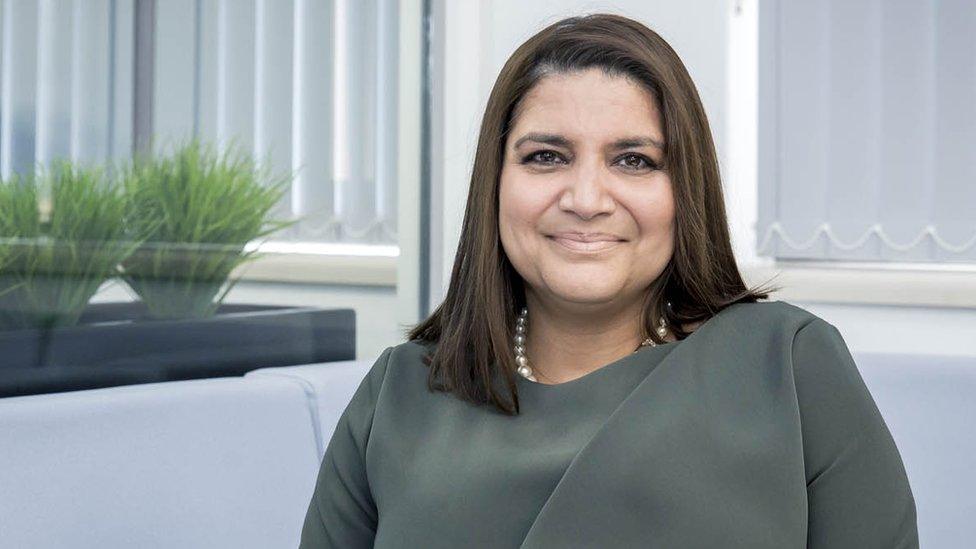
Romana Abdin started her working life as a lawyer
The BBC's weekly The Boss series profiles a different business leader from around the world. This week we spoke to Romana Abdin, chief executive of private healthcare provider Simplyhealth.
Romana Abdin was just three when she contracted polio, but she says she "was one of the lucky ones".
She had to wear leg callipers for several years, and now at 54 she still walks with a profound limp.
But Ms Abdin says it could have been much worse: "Lives have been lost through polio."
In fact, she says that contracting the disease may have helped her, as it gave her a different outlook on life and health.
"It probably helps me think about the fact that health is not about being fully fit and perfect," she says. "It is about living with health challenges, and making the most of it."
The impact of polio has certainly not held Ms Abdin back. After a career in law and then business, since 2013 she has been the boss of UK private healthcare provider Simplyhealth.
As the UK's National Health Service continues to celebrate its 70th birthday, Ms Abdin - the daughter of an NHS doctor - says there will always also be a place for the private sector in healthcare provision.
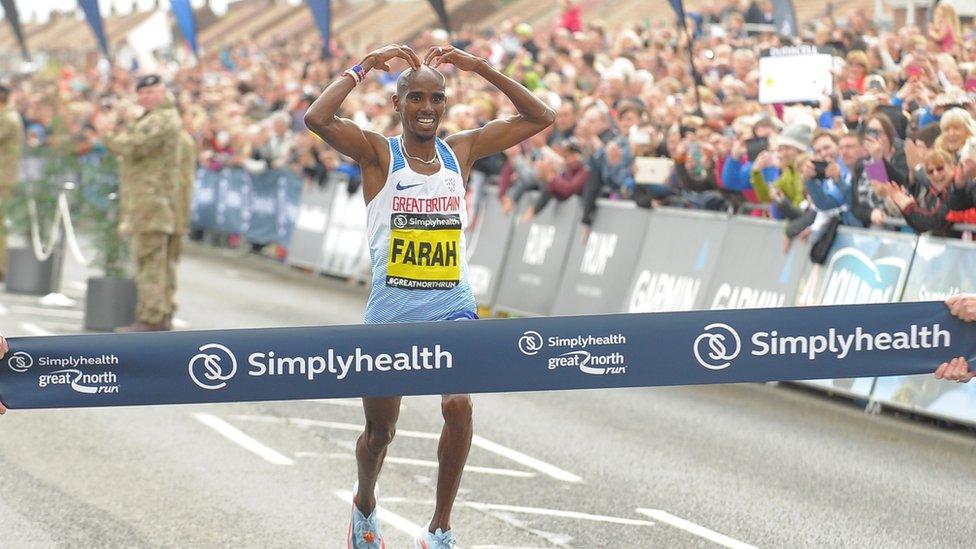
Mo Farah winning last year's Great North Run, which Simplyhealth sponsors
Born in India, Ms Abdin and her family moved to the UK when she was five.
In addition to coping with her mobility issues, when she was 13 her mother died aged just 34, leaving her father to bring up her and her two sisters.
Although Ms Abdin says she "toyed" with the idea of joining the medical profession during her teens, she decided to go into law instead.
So after university in Wales, she became a barrister in 1988, specialising in corporate law and intellectual property.
In 1991 she joined the legal department of the Bradford & Bingley building society, but the busy lifestyle didn't suit family life.
"I had two small children, and there was a moment when I was up and down motorways and hearing my daughter read over the mobile phone and I thought: 'There's more to life than this'.
"I wanted something different."
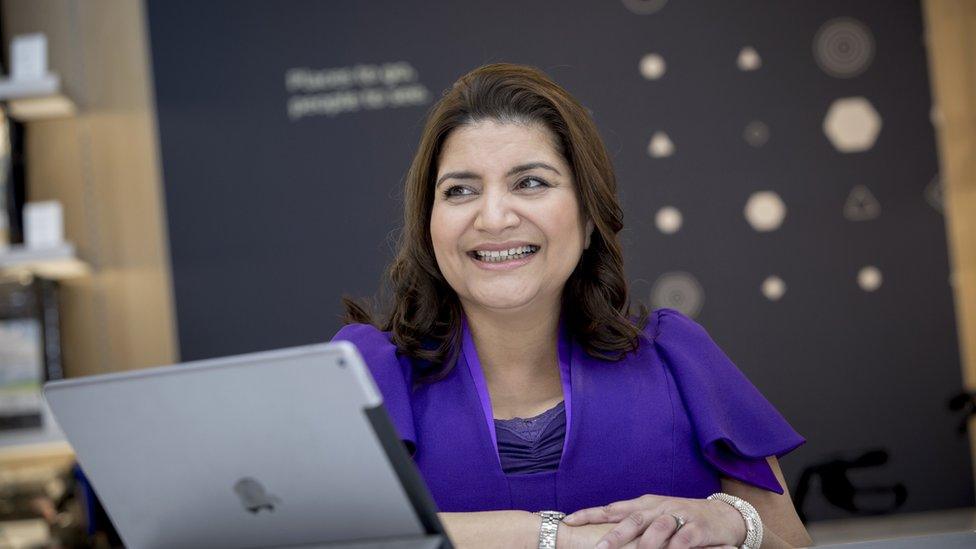
Romana Abdin now has to return the company to profitability
So in 2001 she joined the board of Simplyhealth, which is based in Andover, Hampshire, in the south of England.
She says that she "fell in love with the organisation and its purpose".
After 12 years Ms Abdin was asked if she'd like to become chief executive, but she didn't immediately say yes.
"I was almost going 'I'm not sure I'm the right person, why should anyone follow me?'.
"I was asking: 'Do I have the skills to go with this role?', which is typically what women do."
Thankfully for her she eventually took up the position.
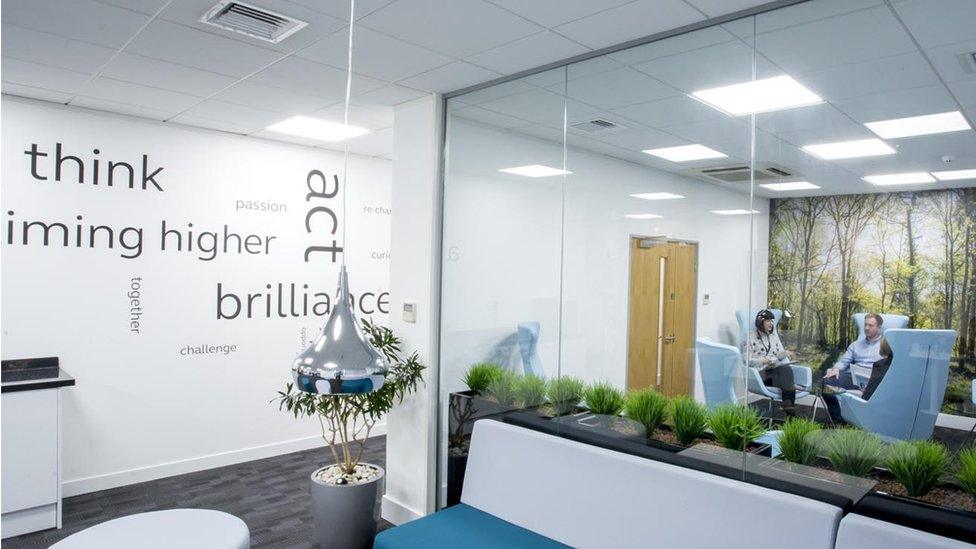
The company's modern headquarters is in Hampshire
Simplyhealth today has 3.4 million active users who pay a monthly fee to help cover costs such as private health checks, dental treatment, physiotherapy, and hospital stays.
But with the NHS proudly celebrating seven decades of free-at-the-point-of-delivery universal healthcare, why should people pay to go private?
"I think the idea of universal healthcare is amazing, but the idea was never intended to be comprehensive," says Ms Abdin.
That's a quote that the NHS's founder Aneurin Bevan would likely strongly object to, but Ms Abdin says that people need to take some personal "responsibility".
She adds: "I believe if the NHS is to continue servicing people in acute moments, every single one of us needs to take responsibility, and organisations [like Simplyhealth] are best placed [to help]."

More The Boss features, which every week profile a different business leader from around the world:

In terms of Simplyheath's financial performance, Ms Abdin has to turn things around after a difficult 2017.
Last year its turnover fell 4% to £238m. More pressingly, annual losses widened from £800,000 to £4.4m.
Ms Abdin says that this loss was the result of costs associated with the closure of subsidiary retail business The Unlimited Company, which sold a range of mobility and home assistance products - from mobility scooters to wheelchairs, and kitchens and bathrooms designed for disabled people.
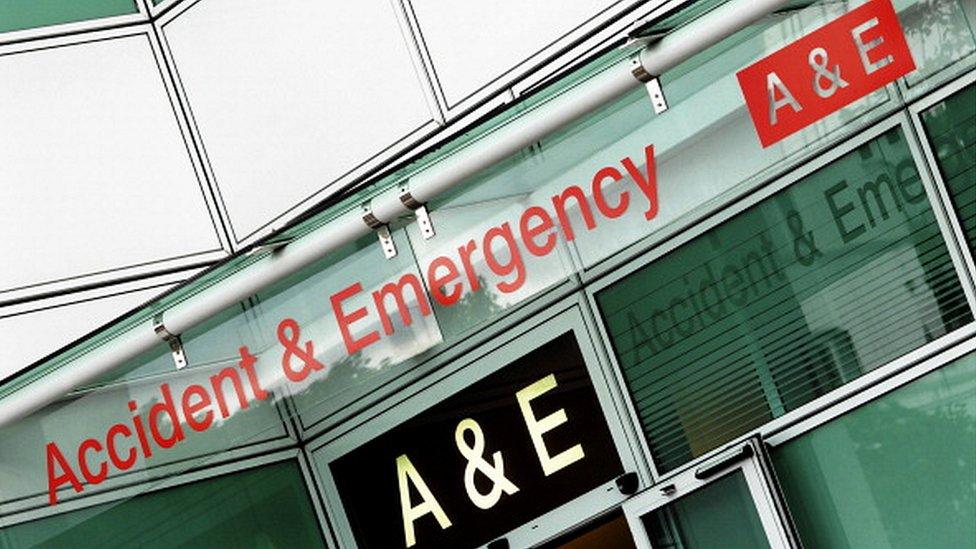
With the NHS providing free-at-the-point-of-delivery care, how do you persuade people to pay for private healthcare?
The Unlimited Company had struggled because such products were being increasingly sold by general retailers.
Ms Abdin says that excluding the cost of closing these stores Simplyhealth was profitable. Its corporate clients include retailers Asda and John Lewis.
Patricia Davies, a health insurance expert at research group Global Data, says that challenge for private healthcare providers in the UK would always remain the same - how to persuade businesses and members of the public to buy cover "when we have the NHS".
Asked how her colleagues would describe her, Ms Abdin responds: "Challenging, disruptive, energetic and loud.
"I'm loud - leadership is about energy. I think the other thing is to say I'm passionate about developing people. I love to see people grow."
In terms of her own health, Ms Abdin says that walking gets harder as she gets older.
"Steps become a problem, and walking is difficult, but it has never stopped me doing anything I wanted," she says.
She adds that once a month she visits a charity "which is focused on helping people with mobility problems remain active".
"I use machinery that works with you and assists you to move, for example a rowing machine that you press against. I go once a month - I'm trying to get to a place where I'm going every week."